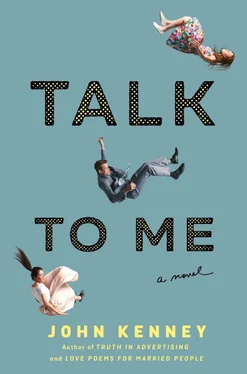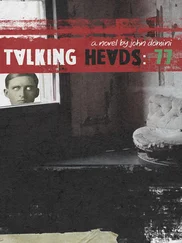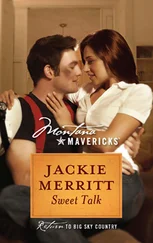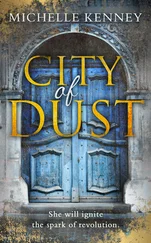He took a large gulp of his champagne. Ted suddenly wished he could hold Diana, whisper to her, You are good. You are beautiful. Love yourself.
Diana smiled and said, “Ted likes the shampoo.”
Ted was confused and feared she was commenting on his hair and possibly his bald spot, though he couldn’t imagine that she could see it over his advanced height. He suddenly hated Diana.
“The shampoo,” she said, touching her glass to his. “The champagne. It’s not just for breakfast anymore.” She emptied her glass and winked.
“Oh, Ted,” Diana said. “You’ll have to excuse me. That’s Leopold and Faustia Freudlich. And they gave vastly more than you.” She smiled and hit Ted’s shoulder, raising her eyebrows, flirting. “Don’t go anywhere.”
And she was gone, across the tent, a knower of names and where people’s children had gone to college, of who was marrying and divorcing and moving and dying. A woman, in other words. Arms wide, welcoming the world and life experiences, showing up, trying. Whereas men—and perhaps it was just Ted—preferred to be left alone, at home, wandering the house, going from room to room, often standing in a room having forgotten the reason they’d walked in in the first place. This was called life over fifty for the American male. Why would you want to go out when there was a fridge full of sandwich fixings, cookies in the pantry, and a Bond marathon on Bravo?
Ted looked out over the party. He was alone now, the others paired off in conversation. He turned briefly back to the bar but realized he didn’t want anything. Most times people approached him. He was, and had been for a goodly portion of the past twenty years of his life, the center of things. If he was in a room he was the focus of attention. Even in interviews with world leaders and rock stars. He was the one asking the questions, leading the conversation.
He should mingle, of course. This is what one did. He turned and mistakenly made eye contact with a couple he’d met before but whose names escaped him. They were wide-eyed and making a beeline for Ted, who, without realizing he was doing it, raised a finger and pointed to the water, though he had no idea why. He started walking away, smiling at them, watching as their smiles changed to confusion as he slipped behind the bar, beyond the tent, to the broad, lush lawn, toward Long Island Sound, where not another soul stood.
• • •
He walked and became aware of his own heavy breathing, watched as his polished shoes sank into the thick grass. He was reminded of ball fields, of running out to center field, running out to the twenty-yard line to start a game from scrimmage, the feeling of lightness and anticipation, the confidence of knowing he would play well, adjusting his cap, snapping his chin strap.
It stayed light later now. Still cool but a sense of spring in the air, the smell of the grass and the flowering trees, the colors of daffodils and crocuses. The sounds of the party faded and were replaced by the water hitting the rocks at the far edge of the property.
He stood and looked out over the Sound. What if he removed his clothes and waded into the water? He was a good swimmer. He imagined the shock of the water, temperature in the low forties at this time of year. His body would adjust. The stroke of swimming so natural and miraculous, moving through the water with grace and speed. The idea of running to the edge of the lawn and removing his clothes pleased Ted enormously. But here, quite suddenly, and for no reason he could think of, the image of his father lying in his last bed came to him. Ted winced at the image, his father’s head leaning off to one side of the propped-up pillows, lips pursed, parchment skin pulled tight to his face, the beginnings of a skeleton. It was a hospice just outside Providence. This was ten years ago. Ted’s mother had died the year before, his father never really recovering, alone in the house. He was a lifelong smoker who didn’t believe in doctors and let the coughing go until it was far too late, when all they could do was give him a morphine drip. Ted and his younger sister, Susan, sitting in the room for days. Susan was going through her second divorce, drinking too much, as always.
Long days in a room with a dying man. Adjust his blanket. Place an ice chip under his tongue. Smooth his hair. Watch the nurses come and go. Notice the clock on the wall, the barely audible tick. Notice that time slows down. Ted would stand at the window and look out at a parking lot as he listened to his father’s breathing, the long delay between labored inhales and exhales. How does a man’s life come to this, to this place? There was a small closet in the room and the door was open and his father’s pants were on a hanger. His pants and a check flannel shirt and an old beige cardigan and a heavy parka from L.L.Bean that Claire had sent him many Christmases ago. And his shoes. Scuffed brown shoes, size nine-and-a-half.
A job with the railroads. First New York & New Haven and later Boston & Maine. Assistant operations supervisor. Overnights to Worcester, Nashua, Portland, Bangor, Montreal. He would bring Ted model trains with the company’s logo on the side.
“I run those,” he’d say.
Later, as the railroads faded, his father was forced to accept a buyout and a reduced pension after their labor union lost a protracted court dispute. For a time, he tried cleaning-supply sales, traveling New England in a much-used Ford Falcon station wagon. He’d stay at Howard Johnson motor lodges, sitting in a booth alone in the evenings with a glass of beer and an evening newspaper, chain-smoking unfiltered Lucky Strikes. He’d bring back saltwater taffy for Susan and chocolate lollipops for Ted. They had horses on them. Cars. The Apollo missions. What were those evenings like, alone, a day with no sales, days when no one would see him, days when he’d leave a card, keep smiling, get back in the car, keep going. He never said, I just don’t find the work fulfilling. I’m thinking of taking a year off to find myself, do more yoga, maybe talk with a life coach.
He should have been sitting next to him, holding his hand, talking to him. He just couldn’t bring himself to do it. It felt like a bad movie. So he stood at the window and looked out. And that’s where he was when his father died. With his back to him.
They buried him on a bitterly cold day in January.
Six months later, Susan—Zee, Ted called her, his nickname for her, or Zeebee—was swimming in Little Compton. She drowned. That’s what the report said. She’d been captain of her high school swim team. An early swimmer. A little fish. Their mother put her hair in pigtails. This doe-eyed girl. Ted had driven to Rhode Island to identify her body. The memory caused Ted to cover his face with his hands, to rub his face as if to rub the image away.
It was this image that Claire saw when she looked over from the small group she was standing with, laughing, making small talk, feeling wonderful, feeling pretty and wanted and alive and hopeful for the first time in years. She saw Ted standing alone with his hands at his face and wondered if he was crying and for a moment, for just a moment, she felt herself start to go to him.
He turned and started back to the tent, hands in his pockets, head down, unaware he was being watched.
• • •
“You must know the Freudlichs, Ted.”
Diana was back, thankfully. She popped a small toast point with a baby shrimp and pesto into her mouth, scanning the party.
“I don’t know them personally.”
“Leopold is a descendant of Archduke Franz Ferdinand. He grew up in Paris. They have a home there, in the Sixth. Do you know the Sixth, Ted? Of course you do. They live half the year there and half the year here. They have a place in the Carlyle. He’s never worked a day in his life. He paints. She’s a dominatrix.”
Читать дальше












